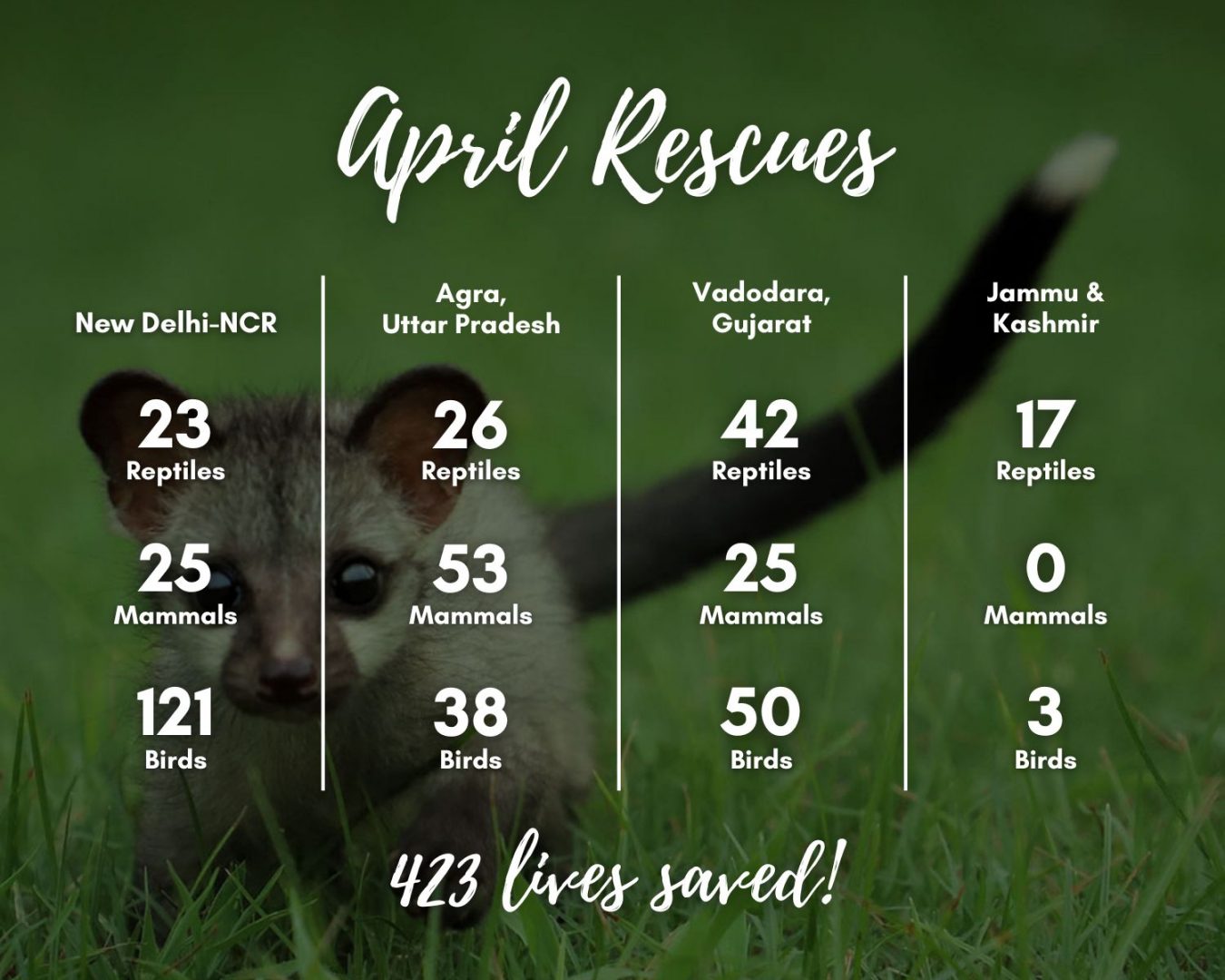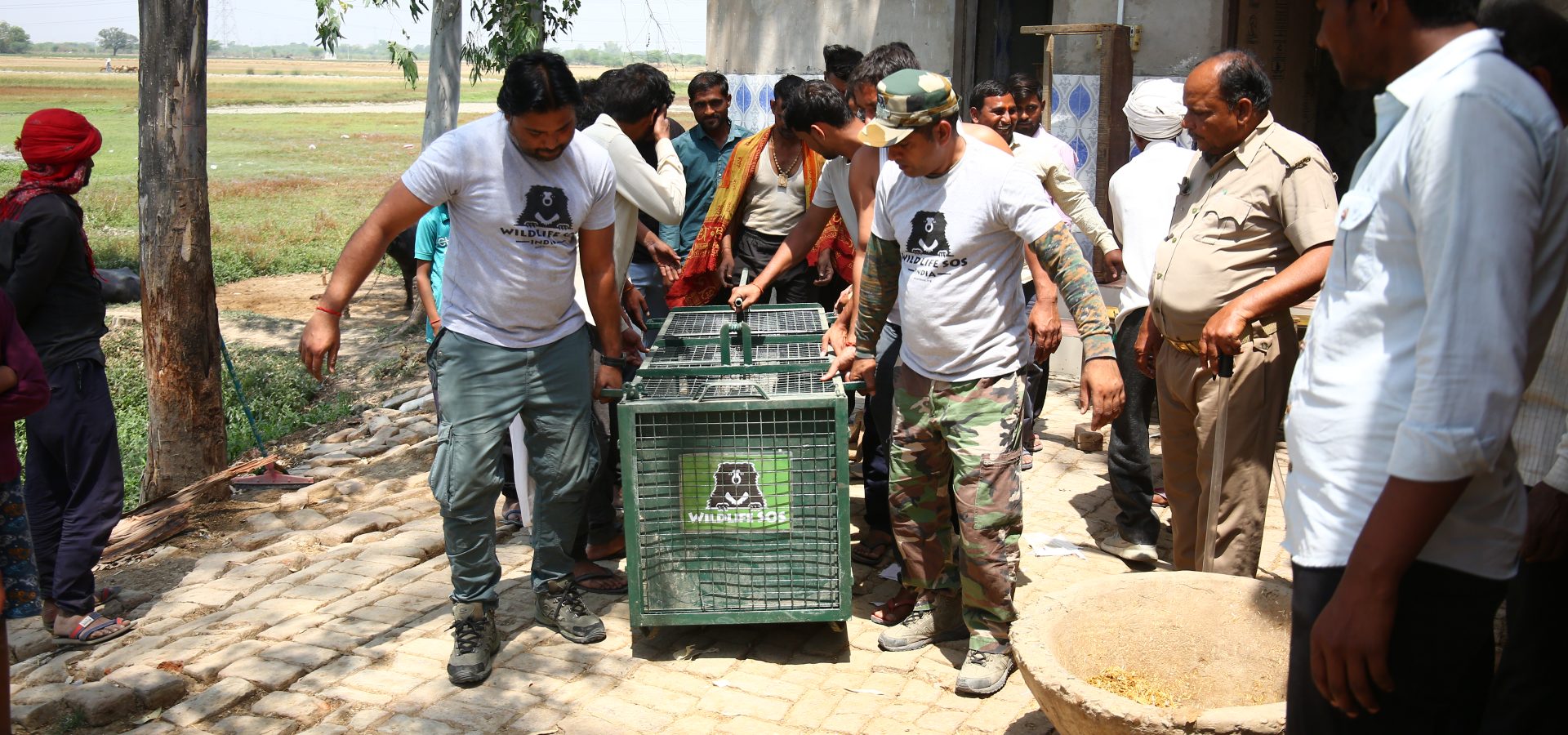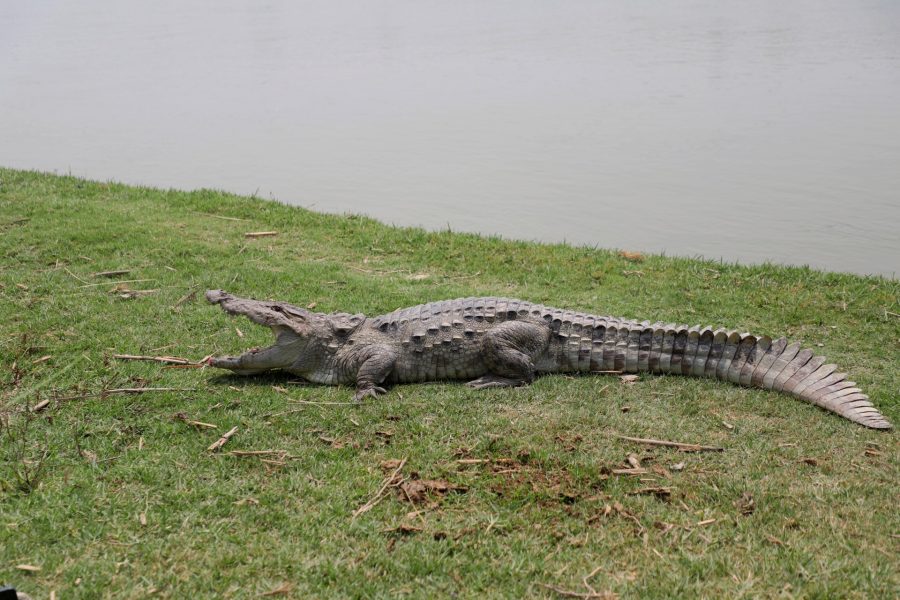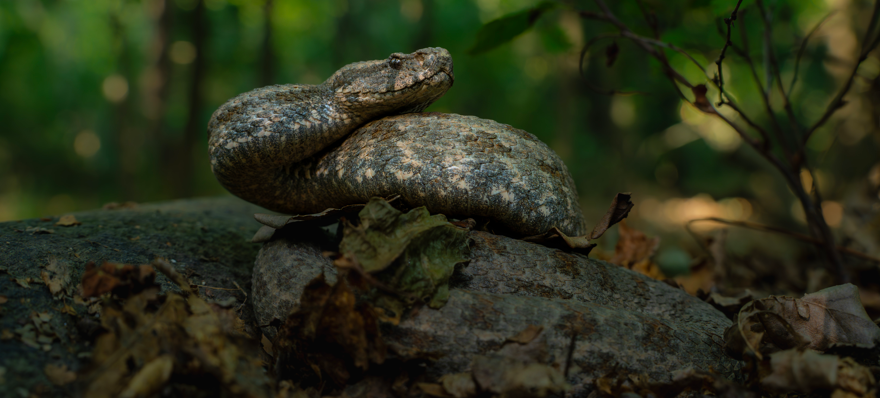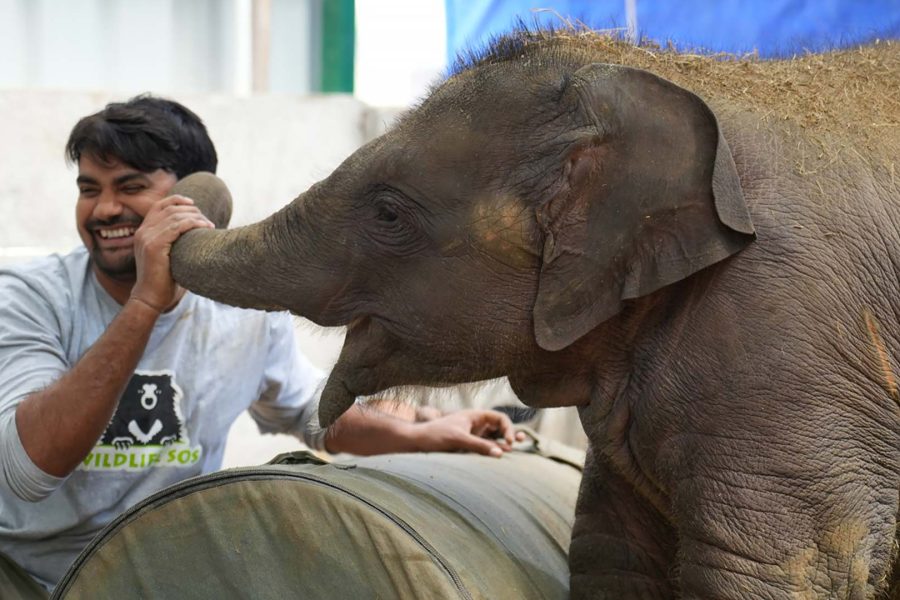Rescue helplines are crucial lifelines for wildlife since they connect concerned citizens with skilled wildlife rescuers. These helplines play a significant role in providing distressed wildlife with another chance at life. The Wildlife SOS dedicated Rapid Response Units are always on the move, promptly responding to calls emanating from multiple regions in Delhi-NCR, Agra, Vadodara, and Jammu and Kashmir. The dedicated rescue teams strive to ensure that every wildlife emergency receives the immediate attention it deserves.
Delhi-NCR
During the month of April, our rescue unit stationed in the Delhi-NCR region conducted an impressive total of 169 rescues, of which 121 were avian species. The rescues ranged from common blue rock pigeons and hawks to squirrels and civet cats. A total of 23 snakes were also rescued in this time frame.
Among these rescues, one particular incident deeply touched our hearts — the heartwarming reunion of a rhesus macaque baby with its mother. The infant was found tangled in a barbed wire fence in the Mithapur area of Delhi. Our rescue team worked in collaboration with the Delhi Fire Force to cautiously free the baby monkey from the fence. As a first step right after the rescue, a thorough preliminary health checkup of the baby monkey was conducted. The baby monkey was found to be healthy and without any injuries, and was immediately reunited with its mother.
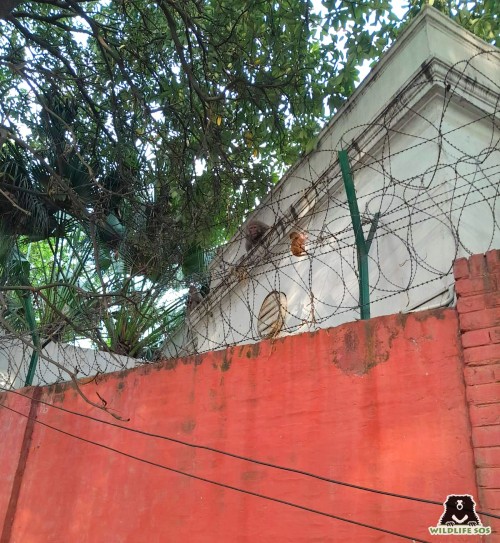
Agra
In a surprise event, our Agra rescue team was called to the quaint district of Jasrana in Firozabad. A 7-foot-long mugger crocodile had entered the premises of an academy and taken up residence in one of its toilets. According to the locals, the mugger seemed to have come from a nearby pond that is said to harbour a small population of crocodiles. Mugger crocodiles can stay on land as well as in water, therefore, it is not surprising for them to venture inland and seek shelter in dry places.
In a collaborative effort with the forest department, our rescue team embarked on a 2-hour-long operation to safely extract the crocodile from the toilet. Once carefully removed, the crocodile underwent routine health checkups before being released back into its natural habitat.
In addition to this, our team also rescued 25 other reptiles, 53 mammals, and 38 birds.

Vadodara
In Vadodara, our Rapid Response Unit rescued a total of 42 snakes, comprising 11 venomous and 31 non-venomous species, from various human settlements. As summer temperatures rise, snakes actively seek cooler places, such as gardens and washing areas, to find respite. Their presence in such residential spaces necessitated our swift intervention to ensure the safety of both humans and reptiles. In one instance, the Wildlife SOS-GSPCA team successfully rescued a cobra that had ventured into an outhouse within a residential society. In all likelihood, this particular snake was enticed by the presence of rabbits that were being reared by the society’s security guard.
In addition to our snake rescues, our team also came to the aid of 9 monkeys, most of whom had suffered an electric shock, and were caught on electric lines and transformers. Experiential observations indicate that female and baby monkeys have a higher likelihood of surviving such accidents and subsequent treatment as compared to their male counterparts. This disparity could potentially be attributed to the higher stress levels experienced by male monkeys upon capture, leading to capture myopathy — a muscle degenerative condition induced by exertion or stress in captured wild animals, often resulting in their demise. This is why during rescue missions, our team makes sure to assess the severity of the injuries to the male. If their injuries are not life-threatening, the monkey is released to heal on their own.
The Vadodara team rescued a total of 117 animals in the month of April that included 25 mammals and 50 birds.
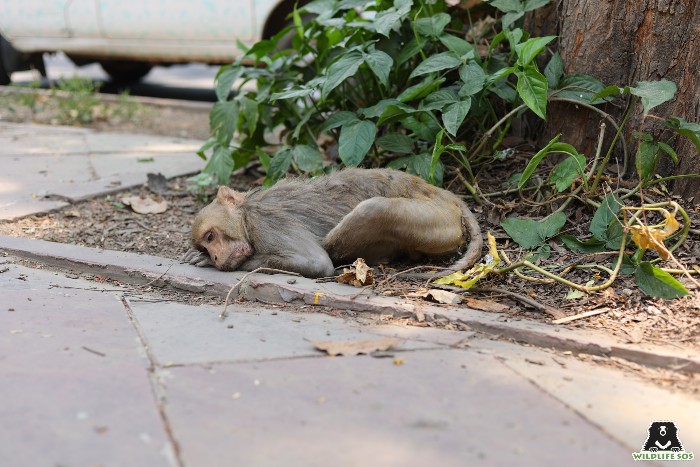
Jammu and Kashmir
Our rescue team in Jammu and Kashmir (J&K) has developed an impressive ability to anticipate when and from where they would receive an influx of calls. As a result, they are always prepared to handle challenging rescues, particularly of snakes. Unlike other areas, J&K experiences a distinctive pattern where a majority of the snake rescue calls occur on sunny days and virtually disappear during rainy periods. The reason behind this is that during rainy days, the ambient temperature drops to an unsuitably low level for the cold-blooded reptile to effectively regulate its normal body temperature and physiological functions. Thus, they instinctively seek shelter in underground burrows to conserve their energy, and come out only with the sun to bask in it.
The Zabarwan range, situated in the foothills of Dachigam, has been a frequent source of rescue calls for our team. Numerous snake rescues have been carried out in this area for both tourists and government agencies. Vipers and trinkets are the predominant snake species found in this region, and they tend to venture into human habitation areas when the sun is shining. In the month of April alone, our team successfully rescued a total of 17 reptiles.
In addition to snake rescues, we also responded to 3 bird rescue calls.
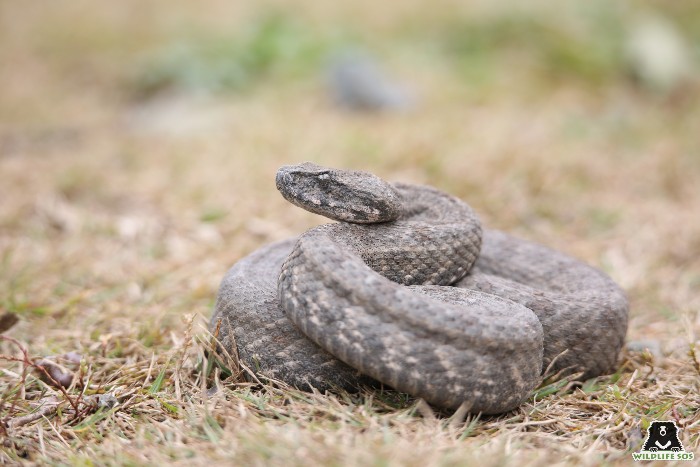
We encourage you to immediately alert the Wildlife SOS team on these 24×7 helplines if you spot a wild animal in distress:
Delhi NCR – +91 9871963535
Agra – +91 9917109666
Vadodara – +91 9825011117
Jammu and Kashmir – +91 7006692300, +91 9419778280
